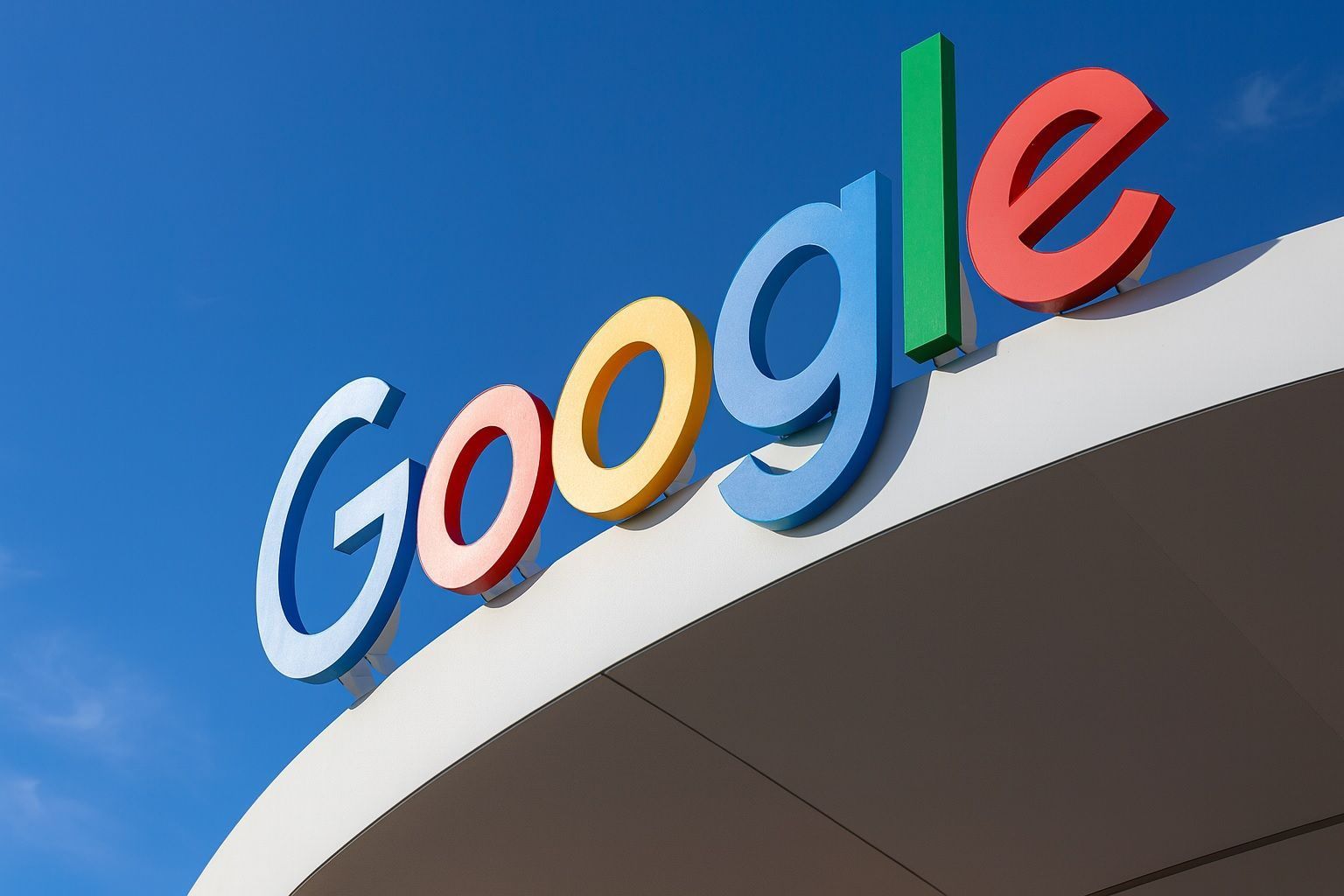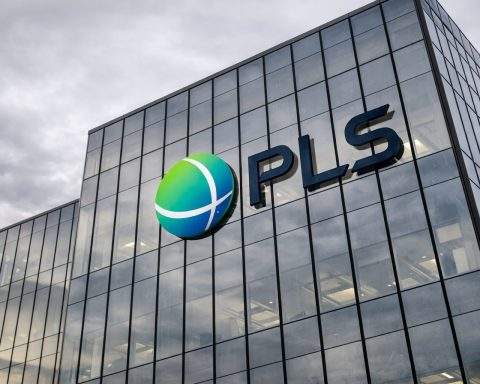Alphabet’s share price is under pressure again ahead of Friday’s opening bell as investors digest fresh Federal Reserve jitters and a barrage of new antitrust, AI and privacy headlines around Google. Here’s a detailed look at what’s moving Google stock this morning and the key storylines to watch once trading starts.
Disclaimer: This article is for information and news purposes only and is not investment advice. Always do your own research or consult a licensed financial adviser before making trading decisions.
1. Google stock today: pre‑market snapshot
Alphabet’s Class A shares (ticker: GOOGL, often called “Google stock”) are pointing to a weaker open.
- As of around 6:55 a.m. ET, GOOGL was indicated at about $273.08 in pre‑market trading, roughly 1.9% below Thursday’s official close of $278.57. 1
- That regular session close was already down about 2.8% on Thursday, after the stock fell from roughly $286–287 the prior day.2
Even after this two‑day slide, Alphabet remains near record territory:
- Over the last 12 months, GOOGL has returned about 60%–62%, with a 52‑week range of roughly $140.53 to $292.01. 3
- Data from Macrotrends shows an all‑time closing high near $291 set earlier this week. 4
- Based on recent quotes, Alphabet’s market value sits a little above $3.3 trillion, and the stock trades at about 27× trailing earnings. 5
Technically, short‑term indicators have cooled after the rally. Quant service StockInvest.us downgraded GOOGL from a simple “Buy” to “Hold/Accumulate” after Thursday’s drop, noting that while the uptrend remains intact, rising volume on a down day is a near‑term warning signal.2
In other words: Google stock is still very much in a long‑term uptrend, but the pre‑market tape says traders are in a “take‑profits and reassess” mood this morning.
2. Macro backdrop: Fed nerves drag on tech and futures
The pressure on Alphabet isn’t happening in a vacuum. US stock futures are pointing to another risk‑off session:
- Around 5:30 a.m. ET, Dow futures were down ~0.2%, S&P 500 futures ~0.2% and Nasdaq 100 futures ~0.4%. 6
- The three major indexes logged their biggest one‑day percentage drops in over a month on Thursday, with heavyweight tech and AI names leading the decline after several Federal Reserve officials pushed back against expectations for a December rate cut. 6
Fed speakers including Neel Kashkari and others signaled caution about additional easing, and futures markets now put the odds of a December 25‑basis‑point cut at roughly 50%, down sharply from about two‑thirds just a week ago. 6
Rising rate‑cut doubts and a higher implied discount rate tend to hit long‑duration growth stocks the hardest — exactly the bucket where Alphabet sits. With the VIX volatility index hovering around the low‑20s, sentiment is fragile, and big tech names like Google can see outsized swings as investors rebalance risk. 6
3. Antitrust spotlight: Google’s EU ad‑tech remedies, no breakup (for now)
The most consequential company‑specific headline for Alphabet this morning is out of Brussels.
Google’s proposal to the EU
Reuters reports that Google has submitted a formal proposal to the European Commission to settle a major ad‑tech antitrust case without being forced to sell parts of its advertising business. 7
Key points from the EU saga:
- In September 2025, the Commission fined Google about €2.95 billion (~$3.4 billion) for abusing its dominance in display advertising technology, particularly around its ad exchange AdX. 7
- Regulators argued that owning tools for both advertisers and publishers and running the central ad exchange created conflicts of interest that hurt rivals and customers. 7
- Brussels had openly floated the idea of forcing Google to divest parts of its ad‑tech stack if behavioral remedies weren’t enough.7
Instead of a breakup, Google’s new plan reportedly includes:
- Allowing publishers to set different minimum prices for different bidders within Google Ad Manager.
- Making ad‑tech tools more interoperable, giving advertisers and publishers more flexibility to use rival platforms alongside Google’s.7
Officials will now review whether these changes adequately address conflicts of interest. Importantly, Reuters notes that EU regulators could still order structural remedies later if they conclude Google keeps behaving anti‑competitively, especially given a parallel case from the US Department of Justice that is still working its way through the courts. 7
Why it matters for the stock:
Alphabet’s ad‑tech stack is deeply integrated into its ad revenue engine. A forced divestiture could carve away high‑margin infrastructure, but a purely behavioral settlement might allow Google to keep most of its economics while tweaking how auctions work. For now, uncertainty about the final shape of any remedy remains a risk premium hanging over the shares.
4. German court hits Google with €573 million in damages
Adding to the regulatory drumbeat, a German court has ordered Google to pay roughly €573 million ($666 million) in antitrust damages to two local price‑comparison sites. 8
According to Bloomberg:
- Berlin’s regional court awarded €374 million plus about €91 million in interest to Idealo, a comparison site owned by Axel Springer.
- A second company, Producto GmbH, won €89.7 million plus about €17.7 million in interest. 8
- The cases build on an earlier EU decision against Google’s shopping practices and could encourage similar follow‑on lawsuits in other jurisdictions. 8
In pure dollar terms, the payout is small relative to Alphabet’s quarterly net income (over $34 billion last quarter), but the ruling underlines how EU antitrust findings can translate into costly civil litigation for years after the original decision. 9
5. AI shopping push: New tools in Search and Gemini
Not all of today’s news is negative. Google is also leaning harder into AI‑powered commerce, which could ultimately support advertising and transaction‑based revenue.
Business Standard and a new Google blog post detail a suite of AI shopping features rolling out in the US: 10
- Conversational shopping in “AI Mode”: Instead of typing rigid keywords, users can describe what they want (for example, clothes for a specific trip and weather), and Google’s AI returns curated options with prices, reviews and availability.
- Store‑calling via Duplex + Gemini: For “near me” product searches, a new “Let Google Call” button lets the AI phone nearby stores, check stock and prices, and then summarize the results back to the user. 10
- Agentic checkout / “Buy for me”: Users can set a target price for an item; when it hits that range, Google can automatically complete the purchase on their behalf — after confirming payment and delivery details — using Google Pay. 10
These features are starting with select US merchants including Wayfair, Chewy, Quince and some Shopify sellers, and they’re also surfacing inside the Gemini app for US users. 10
If adopted widely, this blurs the line between search, ads and transactions, potentially:
- Deepening Google’s data on shopping intent.
- Increasing ad effectiveness and conversion rates.
- Giving Google a stronger foothold against Amazon in product search and checkout.
However, anything that automates purchases and calls stores on users’ behalf also increases the scrutiny on how Google’s AI handles data and consent — which leads straight into the next headline.
6. Gemini privacy lawsuit: New US legal risk
A separate story that Alphabet investors are watching today involves a privacy lawsuit targeting Google’s Gemini AI assistant.
Reporting from ET Telecom describes a class‑action complaint in the US alleging that Google: 11
- Secretly activated Gemini for all users of Gmail, Google Chat and Google Meet in October.
- Used the assistant to monitor and collect private communications to train AI models without sufficient notice or explicit consent.
- Buried the option to disable Gemini within privacy settings, making it hard for users to opt out.
The lawsuit cites state privacy laws (including California’s) and accuses Google of unlawful tracking and data exploitation. At this stage, the claims are allegations, not findings, and Google’s legal response hasn’t yet been fully aired in court.
For Alphabet shareholders, the suit reinforces a growing theme: AI features are rolling out quickly, but legal frameworks around consent and training data are still catching up. That raises the risk of:
- Damages and settlements if courts side with plaintiffs.
- Additional regulatory investigations on AI transparency and data handling.
Combined with Europe’s ad‑tech crackdown, the Gemini case adds to the narrative that regulatory and legal headwinds are now a structural part of the Google investment story.
7. Global media deals: South Africa settlement on news
On the media front, Google is also striking deals beyond the US and EU.
South Africa’s competition authority announced that Google will pay about 688 million rand (just over $40 million) to support local news outlets as part of a settlement over how Google search treated domestic publishers. 12
According to the commission:
- Roughly $4 million over five years will go directly to national publishers and broadcasters for content on Google News.
- Around $2.6 million per year is earmarked to support AI innovation in the local media ecosystem.
- Smaller community and regional outlets will receive funds for digital transformation, while Google also agreed to improve tools that prioritize local news and reduce algorithmic bias against domestic sources. 12
Similar arrangements in Australia, Canada and other markets suggest Google is increasingly willing to write checks and tweak algorithms to keep access to news content, even if it adds modest ongoing costs.
For investors, these deals are small line items financially but show the political and reputational cost of being the gatekeeper for online information.
8. Funding the AI arms race: record capex and bond issuance
Behind all of this is Alphabet’s massive — and growing — AI investment program.
Record Q3 2025 results
In late October, Alphabet reported its first‑ever quarter with more than $100 billion in revenue:
- Q3 2025 revenue came in around $102.3 billion, up about 16% year‑on‑year. 9
- Google Cloud revenue jumped to roughly $15.2 billion, representing mid‑30s percentage growth and beating expectations as enterprises adopt AI infrastructure and tools like Vertex AI. 9
- Net income climbed to almost $35 billion, with diluted EPS rising to $2.87 from $2.12 a year earlier — roughly 35% growth. 9
- All major segments — Search, YouTube, subscriptions and Cloud — delivered double‑digit growth. 9
Alphabet used the occasion to raise its 2025 capital expenditure guidance to $91–93 billion, up from earlier forecasts around $85 billion, with spending heavily focused on data centers, AI chips and cloud infrastructure. 9
Reuters later highlighted that Q3 capex of about $24 billion represented roughly half of operating cash flow, a lower share than some rivals like Meta, Microsoft and Amazon — one reason investors have so far tolerated the spending surge. 13
Debt markets and record bond issuance
To help finance this AI build‑out while continuing buybacks, Alphabet is tapping credit markets more aggressively:
- AInvest and other sources note that Alphabet has issued sizable multi‑tranche bond deals in Europe this year, with proceeds earmarked for AI processors, data centers and cloud capacity. 14
- German outlet FinanzNachrichten reports that Meta, Alphabet and Oracle are leading a rebound in US investment‑grade bond issuance, as tech giants lever up modestly to fund AI spending while rates are still relatively attractive. 15
For shareholders, the key question is return on those AI dollars. So far, the market has rewarded Alphabet for strong earnings and free‑cash‑flow generation, but the pre‑market slide today shows investors are increasingly sensitive to any hint that growth might slow or regulatory costs might rise.
9. Sentiment check: bullish Street targets vs. valuation and accounting worries
Despite this week’s pullback, Wall Street’s fundamental stance on Alphabet remains broadly positive.
Analysts remain mostly bullish
A new MarketBeat summary published today shows: 16
- 4 analysts rate Alphabet as Strong Buy, 37 as Buy, and 9 as Hold.
- The average 12‑month price target is about $304, implying upside from current levels.
Notably, several major firms raised their targets after the Q3 print:
- Morgan Stanley lifted its target from $270 to $330 and kept an “Overweight” rating. 17
- Barclays boosted its target from $250 to $315, also with an “Overweight” stance, arguing that AI is accelerating key revenue lines and that the shares can “continue to work higher.” 18
- CIBC similarly raised its target to $315, citing strong AI and cloud momentum. 19
Other research, including from Oppenheimer and Bank of America, has framed Alphabet as one of the better AI plays relative to Meta, pointing to AI Overviews, AI Mode in Search and Gemini as future ad‑revenue tailwinds. 20
Technical and valuation caution
On the other side of the ledger:
- Quant models like StockInvest have shifted to a more cautious Hold/Accumulate rating near these price levels, even while projecting further gains if the trend continues. 2
- Some analysts on platforms such as Seeking Alpha argue that Alphabet may have run “too far, too fast”, emphasizing the risk that heavy capex and regulatory overhang could crimp future returns if growth slows. 21
And in a widely discussed note, Michael Burry — of “The Big Short” fame — has questioned whether Big Tech’s profits, including Alphabet’s, are artificially flattered by lengthening depreciation schedules for servers and other computing gear. He suggests that spreading costs over more years may be boosting reported earnings beyond sustainable levels. 22
Separately, options data from Quantcha shows implied volatility around 29% for GOOGL options expiring today, signaling that traders expect moderate, but not extreme, price swings in the near term. 23
10. The big picture: what to watch after the opening bell
Putting it all together, here are the main things traders and longer‑term investors may watch in Google stock once US markets open:
- Price action around $270–$280
- Pre‑market indications near $273 place GOOGL just above a short‑term psychological level at $270 and well below recent highs near $290–$292. 1
- A decisive break below $270 on heavy volume could signal a deeper tech correction, while a quick recovery back toward the high‑280s would suggest dip‑buyers are still firmly in control.
- Market reaction to EU ad‑tech remedies and German damages
- Watch for any fresh commentary from Brussels or Berlin. A hint that regulators view Google’s proposal as insufficient — or that more lawsuits could follow the German verdict — could keep pressure on the stock. 7
- Headlines on the Gemini privacy lawsuit
- Any official response from Google, or moves by US regulators to open separate probes, would be closely watched, especially given the increasing reliance on Gemini across Google’s products. 11
- Adoption chatter around AI shopping tools
- Early feedback from merchants and users on AI Mode, store‑calling and agentic checkout could shape the market’s view of how quickly these features might become meaningful to revenue. 10
- Broader tech sentiment and Fed commentary
- If Fed speakers continue to talk tough against near‑term rate cuts and bond yields climb, high‑multiple AI leaders like Alphabet could stay under pressure, regardless of company‑specific news. 6
- Ongoing flow of analyst notes and fund positioning
- Given how crowded Alphabet has become in institutional and retail portfolios, large fund rebalancing — or a change in tone from bullish analysts — can quickly amplify moves in either direction. 16
Final takeaway
Ahead of the November 14, 2025 US market open, Google stock is caught between two powerful forces:
- A very strong fundamental AI and cloud story, backed by record Q3 results, hefty capex plans and a chorus of bullish Wall Street targets. 9
- A growing stack of regulatory, legal and macro uncertainties — from EU ad‑tech remedies and German damages to US privacy lawsuits and a more hawkish Fed — that is making investors more selective about how much they are willing to pay for that growth. 7
For now, the pre‑market message is simple: the bar is high, the valuation is rich, and traders want more clarity — on regulation, on rates and on how fast Google can turn its AI arsenal into durable, low‑risk cash flows.






